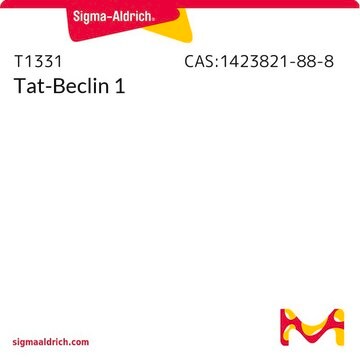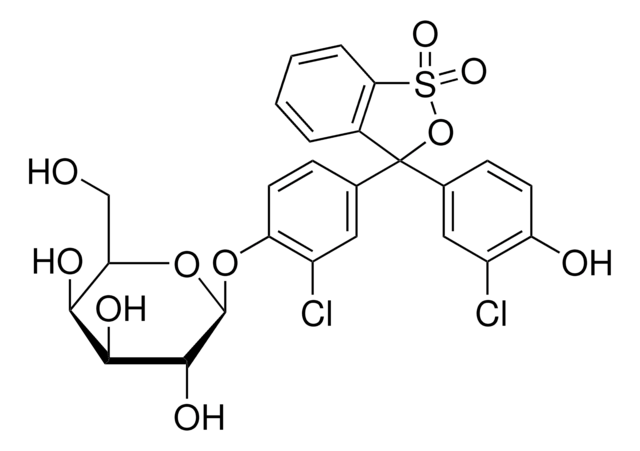SCP0169
HIV-1 Tat Peptide
≥95% (HPLC), lyophilized powder
Sign Into View Organizational & Contract Pricing
All Photos(1)
About This Item
Empirical Formula (Hill Notation):
C65H124N34O13
Molecular Weight:
1589.90
UNSPSC Code:
12352202
NACRES:
NA.32
Recommended Products
product name
HIV-TAT (48-57),
Assay
≥95% (HPLC)
form
lyophilized
composition
Peptide Content, ≥55%
storage condition
protect from light
storage temp.
−20°C
Amino Acid Sequence
Gly-Arg-Lys-Lys-Arg-Arg-Gln-Arg-Arg-Arg-Pro-Pro-NH2
General description
Human immunodeficiency virus (HIV)-transactivator of transcription (Tat), a regulatory protein is coded by the Tat gene of HIV-1. Tat is made up of two exons, highly conserved regions, and subtype-specific regions.
Biochem/physiol Actions
Human immunodeficiency virus (HIV)-transactivator of transcription (Tat) participates in the pathogenesis of HIV-related complications. Tat protein is also involved in HIV-related cardiac dysfunction. HIV-TAT (48-57) is used to facilitate the internalization of synthetic peptides.
Storage Class Code
11 - Combustible Solids
WGK
nwg
Flash Point(F)
Not applicable
Flash Point(C)
Not applicable
Certificates of Analysis (COA)
Search for Certificates of Analysis (COA) by entering the products Lot/Batch Number. Lot and Batch Numbers can be found on a product’s label following the words ‘Lot’ or ‘Batch’.
Already Own This Product?
Find documentation for the products that you have recently purchased in the Document Library.
Yanan Jiang et al.
Journal of translational medicine, 16(1), 121-121 (2018-05-10)
The human immunodeficiency virus (HIV) is a major global public health issue. HIV-related cardiovascular disease remains a leading cause of morbidity and mortality in HIV positive patients. HIV Tat is a regulatory protein encoded by tat gene of HIV-1, which
S-M Lee et al.
Clinical and experimental immunology, 161(3), 504-511 (2010-07-22)
The immune receptor expressed on myeloid cells 1 (IREM-1) has been known to regulate the activities of myeloid cells through its immunoreceptor tyrosine-based inhibition motifs (ITIMs) in its intracellular region. In order to investigate its effect on macrophage activation, a
S-M Lee et al.
Clinical and experimental immunology, 167(3), 438-446 (2012-02-01)
The immune receptor expressed on myeloid cells 1 (IREM-1/CD300F) has been shown to inhibit various inflammatory processes in myeloid cells, such as macrophages and mast cells. IREM-1 exerts its inhibitory effect through its intracellular immunoreceptor tyrosine-based inhibition motifs (ITIMs). In
Our team of scientists has experience in all areas of research including Life Science, Material Science, Chemical Synthesis, Chromatography, Analytical and many others.
Contact Technical Service








